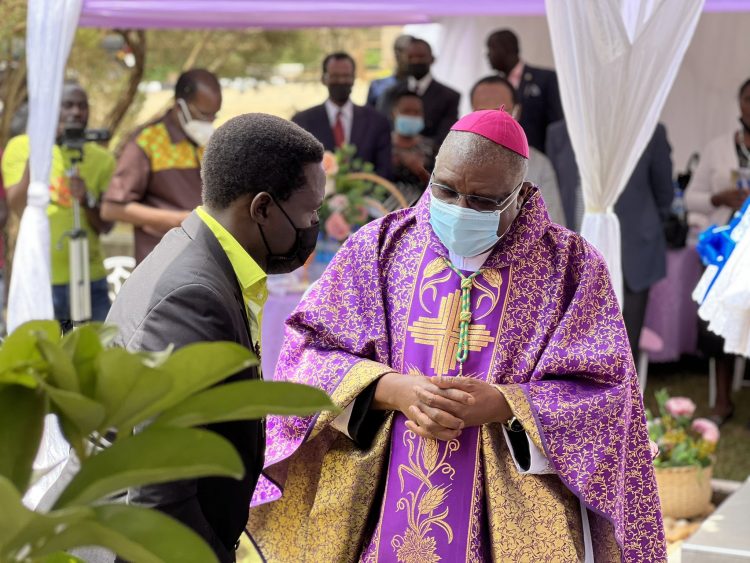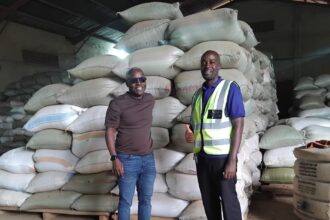By Dr. Ian Clarke
We all want to stay healthy, but in the event that we fall sick we also need to be able to meet the costs, which are best provided through medical insurance. However, many people believe that they never fall sick, so paying for medical insurance is not a priority. Therefore, when it comes to individuals and families, very few budget for health insurance cover. This is not to say that there is no medical insurance in Uganda, but health insurance is usually paid by the employer, not the individual. Ugandans tend to think they have better things to do with their money than insuring their own health. Then if they do have a medical problem they either ignore it until it is too late, or get under great pressure looking for the money to pay the hospital bill.
An interesting statistic is that those who do have medical insurance attend the doctor, on average, about five times per year. These are the same individuals who, if they had to pay their own insurance, would assert they never get sick. Thus, either people get sick more often than they admit, or they attend a doctor more often when they have a free insurance. Either way, the mentality is wrong: we are either paying no attention to the risk that our bodies might break down and need fixed, or we think that many visits to the doctor will help to keep us healthy. The problem is that we are focusing on the wrong issue: we have turned our priorities upside down, and are focusing on sickness, not on staying healthy.
This is a problem for many countries which run ‘health’ services: they do not run a health service which keeps people healthy, they run a ‘sick’ service. When the service is cheap or free, people overuse the ‘sick’ service, but otherwise live under the illusion that they need not take any personal responsibility for maintaining good health. Doctors, and the public, need to focus on staying healthy, rather than treating sickness. Such a change in attitude would also be of great benefit to health insurance companies and to the Ministry of Health, because it saves money spent on unnecessary visits to the doctor. This is not to say that we can prevent all illnesses, but we can prevent many, and we can detect other illnesses at an early stage and thus deal with them more effectively. Many people in Uganda die because they attend a doctor for trivial illnesses, but delay when it comes to treatment for serious illnesses.
The World Health Organization predicts that there is another epidemic unfolding in Africa: an epidemic of non-communicable diseases (NCDs). We have been focusing on infectious diseases, such as malaria and HIV, but now we are seeing rapidly increasing numbers of cases of heart disease, diabetes and cancer. Many of these are ‘lifestyle diseases’, because they are rooted in the type of lifestyle we adopt. This includes diet, the amount of exercise we take, and habits such as smoking and alcohol consumption. Our health and risk of death is also influenced by factors such as atmospheric pollution (which causes chest conditions including asthma) and a careless mindset, in which we adopt risky behavior. This attitude, by definition, puts us more at risk – from dangers and catastrophes which we don’t find in more developed nations. How often have we seen people run towards a fuel tanker, which has been involved in an accident, and become incinerated by an explosion that follows? The obvious, and safe, behavior would be to run away from the danger, but that is not the mindset of poor people who put the incentive of free fuel above the risk of horrible death by incineration.
The other condition that causes sickness and death is poverty. When people are poor they are statistically more likely to get diseases such as malaria, and pneumonia, because their living conditions predispose them to getting bitten by mosquitoes and becoming cold and wet, causing a higher rate of malaria and pneumonia. Poor people also have more babies than the middle classes, because they are not educated, thus increasing their risk of maternal death, and high infant mortality. The poor also get worse medical attention than the rich.
It all adds up to reasons for us to take a different attitude to health, both as a nation, and as individuals. It makes economic sense for the nation to put the emphasis on keeping us healthy through education on lifestyle choices, and risky behavior, and of course the same applies to individuals. In the next column I will deal with various behaviours, which can help keep us healthy and prolong our lives.
Do you have a story in your community or an opinion to share with us: Email us at Submit an Article






